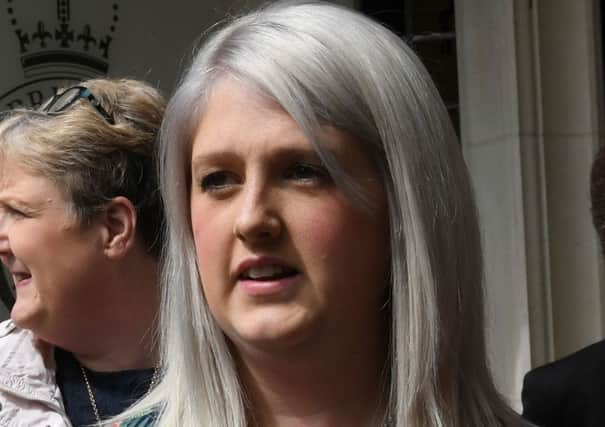Campaigner pledges to fight on for abortion access in court


Sarah Ewart, who in 2013 travelled to England for an abortion because she was denied one in Northern Ireland, said yesterday she intends to take a case to the High Court in Belfast.
The objective would be to seek the formal declaration that the Province’s laws are incompatible with the European Convention on Human Rights – something the Supreme Court was prevented from officially declaring due to a technicality.
Advertisement
Hide AdAdvertisement
Hide AdSpeaking outside court in London, she said: “I, and we, will not stop until we can get our own medical care in our own hospitals at home.
“I am relieved to hear the highest court in the land has recognised that Northern Ireland is in breach of human rights for people who find themselves with fatal foetal abnormality and have said that the law needs to be changed, so we will keep going until we get that change.”
The technicality which stopped the judges’ views from being legally binding is that the Northern Ireland Human Rights Commission did not have the “standing” itself to bring the case.
However, Labour MP Stella Creasy suggested in Parliament today that it may now lie with people who have been personally affected by the alleged breaches of human rights law to mount court cases themselves.
Advertisement
Hide AdAdvertisement
Hide AdShe suggested this could mean “requiring a rape victim to come and give evidence in open court to be able to access this declaration”.
Meanwhile, new abortion statistics published by the government showed that in England and Wales in 2017, there were 919 abortions for women from Northern Ireland, an increase of over a quarter from 2016 and the highest level since 2011, according to Department of Health statistics.
However, looking historically the number of Northern Ireland residents having an abortion in England and Wales has generally declined since a peak of 1,855 in 1990.
Overall, figures show the abortion rate in England and Wales went up by 2.3% from 2016 to 2017, to 194,668 abortions (including non-residents).